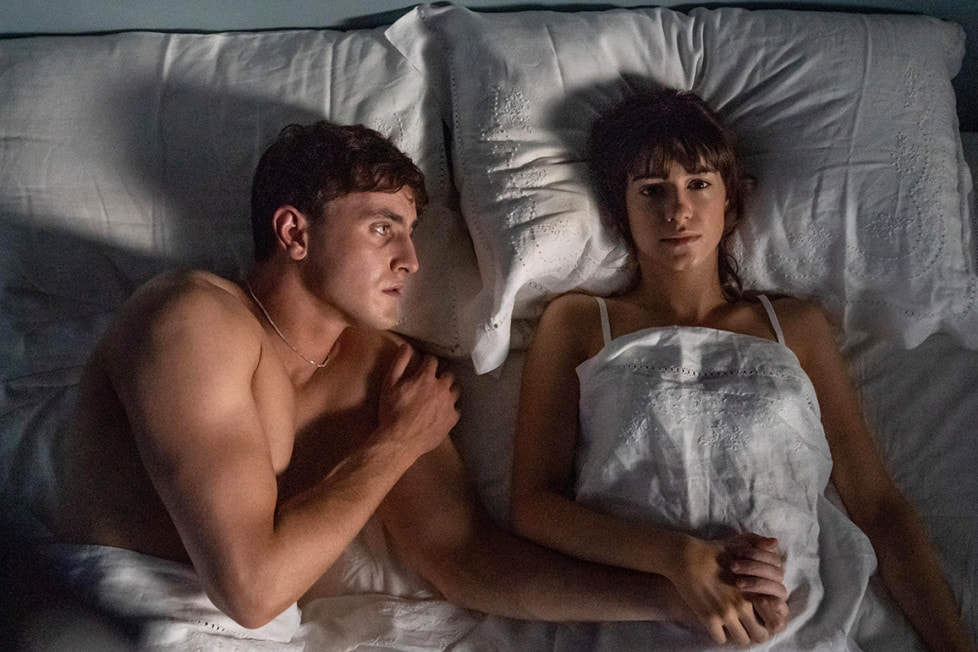Helping them navigate the many intense scenes, especially for Mescal, a theater actor who finds himself in his first major TV role, was Ita O’Brien, an intimacy coordinator responsible for being a liaison between the actors and crew in order to make those ever-awkward sex scenes just a little less uncomfortable for everyone involved. “She’s definitely at the forefront of that as a functioning member of the filming community,” Mescal told me before describing what the process of working with her was like. “We rehearsed with Ita prior to filming so that we knew the structure when it came to working on set. At the start of the day when we’d be doing sex scenes, we would sit down with her and Lenny and just discuss the scene. Emotionally was a really important thing to Ita, so the center of the scene was the emotional intimacy between them. Then the physical act of the scene, what was physically happening between Connell and Marianne. Then we would block the scene and shoot it and all the while it was about Ita and Lenny and Hettie being attentive to what me and Daisy felt comfortable with. Ultimately I think that liberates us as actors, that we don’t feel self-conscious, we’ve discussed it and we feel safe and comfortable, and I think it allows the scenes to be quite powerful and moving.”
“I completely agree,” Edgar-Jones added. “It’s a very vulnerable place to put yourself in, especially as a young actor. You want to please and do your best but Ita and Lenny and all the creatives made such an environment that never felt that we had to do anything that we didn’t feel 100% comfortable with. You are able to only do something if you feel it’s important to the story and it’s the right thing to be doing. She was wonderful and also she set the boundaries so there was never any gray area. It was always clear what we were doing. [The sex scenes are] so important to the story and so important to the book, it was really important to do them justice in the series and for them to be honest. They’re always furthering a narrative so Ita created an environment that meant all Paul and I had to worry about was what that story beat was rather than physical choreography.”
The addition of the intimacy coordinator was a win for Abrahamson as well. “I absolutely loved it and that’s coming from a position where I was initially kind of skeptical. I think everybody knows that directors are, I suppose, anxious about anything that gets between them and the actors which is this intimate relationship, which is the thing you protect. But what I realized very quickly after working with Ita is she’s not about getting between you and the actors, she’s about creating an environment where you can all do your best work, safe and protected and feeling like it’s this shared creative endeavor. [She] listens to everybody involved and where nobody needs to feel pressured or uncomfortable and that’s a really brilliant space to work in. When we met Ita, she initially comes in and gives a talk to the director and key production people and I found it really really useful because the actors have somebody else involved that they can really bring any concerns to. I don’t think there was a point where anybody was uneasy but knowing that there’s this bigger space within which that stuff can happen, it was very empowering for people.”
“What’s brilliant about the process of working with an intimacy coordinator,” Abrahamson said, “Is all that stuff’s out in the open. You’re not in those guessing games about whether people are comfortable or not, it’s done in an upfront and grown-up and mature way. I think it allowed us to work in such a way that we got to a level of truthfulness in those scenes that would be otherwise very difficult to get to.”
More . . .


 RSS Feed
RSS Feed
